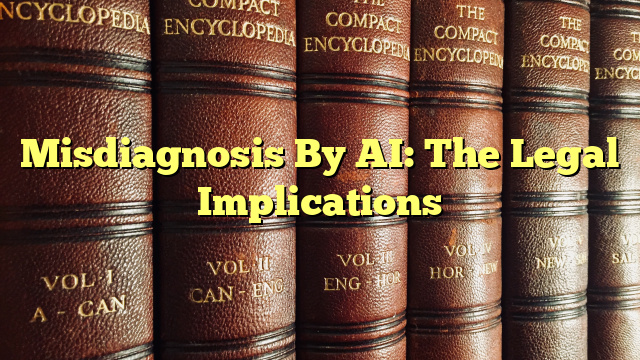Table of Contents
- Legal Implications of Artificial Intelligence
- Legal Ethics Issues with AI
- Responsibility for AI Medical Mistakes
- Accountability for AI Mistakes
Legal Implications of Artificial Intelligence
Artificial Intelligence (AI) has revolutionized various industries, including healthcare. However, with this advancement comes legal implications that need to be addressed. One of the major concerns is the potential for misdiagnosis by AI systems.
When AI systems are used to analyze medical data and make diagnostic decisions, there is a risk of errors and misdiagnosis. This raises questions about the legal consequences of such mistakes.
Medical malpractice laws typically hold healthcare professionals accountable for errors in diagnosis. However, when AI is involved, determining liability becomes more complex.
Legal Ethics Issues with AI
AI systems rely on algorithms and machine learning to analyze vast amounts of data and make decisions. However, these algorithms are not foolproof and can be influenced by biases in the data they are trained on.
Legal ethics issues arise when AI systems make decisions that are influenced by biased data, leading to discriminatory outcomes. For example, if an AI system consistently misdiagnoses certain demographics, it could be considered a violation of equal treatment and non-discrimination laws.
Ensuring that AI systems are fair, transparent, and accountable is crucial to address these legal ethics issues.
Responsibility for AI Medical Mistakes
When AI systems are involved in medical diagnosis, the question of responsibility arises. Who should be held responsible for mistakes made by AI?
One argument is that the responsibility lies with the healthcare professional who used the AI system. They are responsible for interpreting and acting upon the AI-generated diagnosis. However, this argument raises concerns about the competence and training of healthcare professionals in using AI systems.
Another perspective is that the responsibility should be shared between the healthcare professional and the developers of the AI system. Developers have a duty to ensure that their systems are accurate and reliable. If the AI system is flawed or produces incorrect diagnoses, the developers could be held accountable.
Accountability for AI Mistakes
Accountability for AI mistakes is a complex issue. Traditional legal frameworks may not adequately address the unique challenges posed by AI systems.
One possible solution is to establish a regulatory framework specifically for AI in healthcare. This framework would define the responsibilities and liabilities of healthcare professionals and AI developers. It would also outline the steps to be taken in case of AI-related mistakes or misdiagnoses.
Additionally, there should be transparency in AI systems, with clear documentation of the algorithms used and the data they are trained on. This would enable better scrutiny and accountability.
Ultimately, holding both healthcare professionals and AI developers accountable for AI mistakes is crucial to ensure patient safety and maintain trust in AI systems.


AI making diagnosis without confirmation is concerning; this risks medical malpractice & potential legal implications.